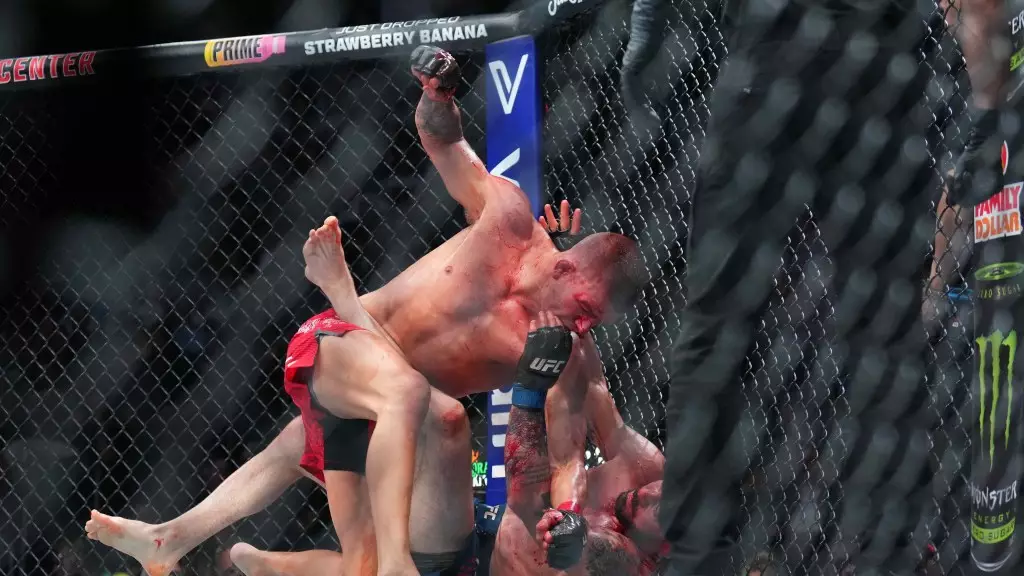Grant Dawson, a promising figure in the lightweight class, is determined to change the narrative surrounding his fighting style. With a professional record of 21 wins, 2 losses, and 1 draw, as well as an impressive 9-1-1 in the UFC, Dawson is set to face Rafa Garcia at UFC Fight Night 244 on October 12. Despite his credible achievements inside the octagon, Dawson finds himself frustrated by critics who label his style as boring. This perception is not only a personal affront but it also undermines the technical prowess required for his successes.
Dawson, who primarily relies on his wrestling abilities, argues that his style is rooted in tactical dominance rather than a lack of excitement. He recently illustrated this point with an example from his last bout against Joe Solecki, where he showcased his wrestling by securing an astonishing 13 minutes and 45 seconds of control time out of a possible 15. This kind of performance demonstrates not only physical capability but also strategy, as he expertly navigates through the intricacies of ground-control fighting. Nevertheless, this level of control has led him to be categorized in a less favorable light when it comes to entertainment value.
Dawson’s struggle for recognition raises questions about the subjectivity of fan preferences in mixed martial arts. He draws an interesting comparison between himself and the reigning UFC lightweight champion, Islam Makhachev. Both fighters utilize similar wrestling techniques, yet Makhachev is widely celebrated for his style. Dawson’s frustration peaks as he probes the inconsistency in how fighters are perceived based on their approach to winning. “If Makhachev can garner admiration, why is my dominance overlooked?” Dawson asks. This disparity highlights the complex dynamics of fan loyalty and how it can disproportionately favor certain fighters based solely on popularity and hype rather than skill.
Dawson acknowledges the duality of fighting for survival while striving to entertain. “I’m fighting for my life in there. I’m fighting for my wife to not have to go back to work,” asserts Dawson, revealing the heavyweight stakes each fighter feels within the ring. His determination to win often translates into a methodical approach, one that prioritizes securing victory over thrilling the audience with flashy striking combinations. While he endeavors to be more “exciting,” his primary focus remains on the win column. The ongoing tension between style and substance creates a conundrum that many fighters have faced throughout the history of MMA.
In a sport like MMA, where narratives are often formed around excitement and entertainment value, Grant Dawson’s call for recognition sheds light on the complexities of what it means to be a competitive athlete. As he prepares for his upcoming bout, one can only hope that the fans will appreciate not only the victories but also the strategic brilliance that accompanies them. In a time where entertainment often overshadows skill, Dawson’s commitment to his craft deserves an equal share of the limelight. The world of MMA needs to broaden its horizons, appreciating different fighting styles and the distinct achievements that come with them.

